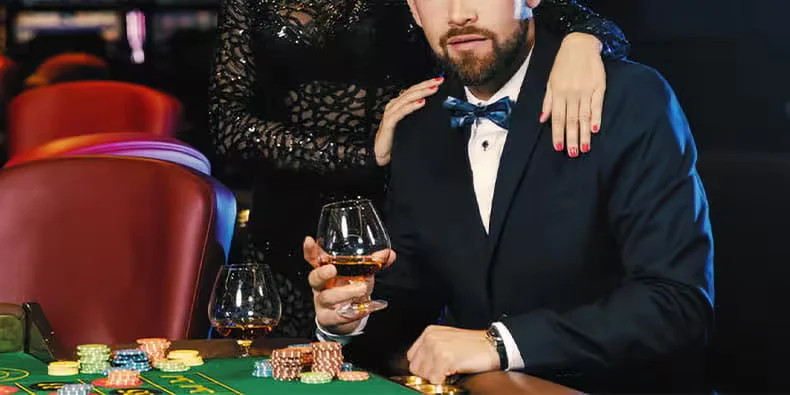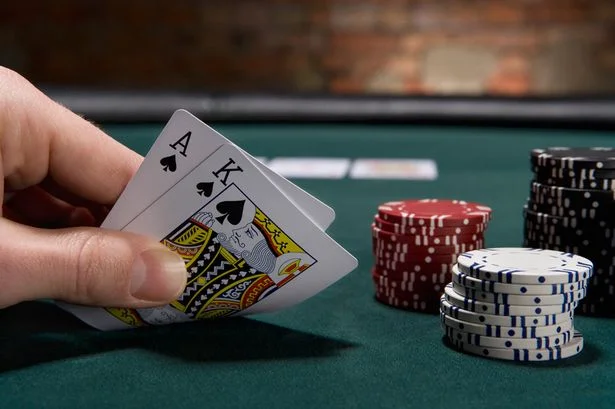What Is A Muck In Poker
In the world of poker, the term muck cards holds significant meaning. It refers to the action of folding a hand, which involves discarding one’s cards into the ‘muck pile’ without revealing them to the other players. This tactical move is integral to the strategy of the game, as it allows players to conceal their strategies from opponents. Understanding how to muck correctly is a vital skill for any aspiring poker player. In the following sections, we will delve deep into the concept of mucking in poker, providing you with all the necessary knowledge to exercise this action effectively.
The correct interpretation and execution of a muck in poker can be a game-changer, providing a considerable advantage for a successful game. Mucking is not merely about folding your hand; it’s also about timing, position, and the ability to read your opponents’ gameplay. We will guide you through every facet of mucking and its strategic implications, helping you to master the art of folding in poker. This comprehensive guide will cover the rules of folding in poker, enabling you to gain an edge over your competitors and optimise your gameplay.
What Are The Ways To Reset Cards In Poker
Before delving into the various methods of resetting your hand in poker, it’s important to grasp the gravity of this tactical manoeuvre. Each method of folding in poker carries its own nuance and strategic implications, offering opportunities for players to outwit their opponents. Mastering these techniques can significantly enhance your poker play, giving you an edge over less-experienced opponents.
Push Your Cards
The ‘Push Your Cards’ method is one of the simplest ways to reset your hand in poker. In this technique, you gently push your cards towards the dealer, signifying that you intend to fold. Be careful to avoid revealing your cards to other players as you do this. Also, ensure that your cards are clearly separate from the community cards to avoid any confusion.
Shift Your Cards
Another common way to reset your hand in poker is the ‘Shift Your Cards’ method. This slightly more discreet method involves subtly shifting your cards face-down and sliding them towards the centre of the table. This movement indicates to the dealer that you wish to fold. As with the ‘Push Your Cards’ method, make sure your folded cards are distinct from the community cards.
Cover and Slide
The ‘Cover and Slide’ method is a popular technique among seasoned poker players. In this method, you use one hand to cover your cards, preventing other players from catching a glimpse of your hand. With your other hand, you slide your cards subtly towards the dealer, signalling your intention to fold. This method requires a bit more finesse, but with practice, it can become a seamless part of your poker strategy.
The Flip Fold
The ‘Flip Fold’ is a visually distinct method of resetting your hand in poker. In this approach, you flip your cards face-down and then slide them towards the dealer. The flip adds an additional layer of security, ensuring that other players cannot see your cards. However, this method is more conspicuous and may draw attention to your action.
Remember, the key to any of these techniques lies in the subtlety of execution. The goal is to reset your hand without revealing any information to your opponents.
Rules for Folding Cards in Poker
Folding cards in poker follows a set of rules that ensure the game’s flow and fairness. Understanding these rules and their implications is crucial to maintain the integrity and strategic element of the game. Here are some important rules for folding cards in poker:
- Put the Cards in Front of the Dealer: When folding, ensure to place your cards directly in front of the dealer. This rule ensures the dealer can clearly see and acknowledge your action, thus preventing any confusion about your intention to fold. It also maintains a smooth flow of the game.
- Do Not Throw the Cards on the Table: It is considered disrespectful and disruptive to throw your cards on the table when folding. Such an action can reveal your card to other players, consequently influencing the outcome of the game. It also maintains the decorum and respect among players.
- Discard When It’s Your Turn to Bet: Always wait for your turn to bet before you fold. Folding out of turn can give away vital information about your hand to your opponents, affecting their betting decisions. It also ensures adherence to the sequential progression of betting in poker.
- Do Not Reveal Your Cards When Folding: This rule is important to preserve the mysterious aspect of the game. Revealing your folded cards can provide information about your gameplay strategy to your opponents.
- Fold with Discretion: Consider your decision to fold carefully. Once you fold, you are out of the round, and there is no way to get back in. This rule is critical to ensure you consider all factors before making a decision.
- Keep Your Folded Cards Separate from Others: Ensure your folded cards are distinguishable from the community cards and the muck pile. This rule maintains clarity and prevents any mix-up of cards on the table.
Rules for Folding Cards in Poker
Folding cards in poker follows a set of rules that ensure the game’s flow and fairness. Understanding these rules and their implications is crucial to maintain the integrity and strategic element of the game. Here are some important rules for folding cards in poker:
- Put the Cards in Front of the Dealer: When folding, ensure to place your cards directly in front of the dealer. This rule ensures the dealer can clearly see and acknowledge your action, thus preventing any confusion about your intention to fold. It also maintains a smooth flow of the game.
- Do Not Throw the Cards on the Table: It is considered disrespectful and disruptive to throw your cards on the table when folding. Such an action can reveal your card to other players, consequently influencing the outcome of the game. It also maintains the decorum and respect among players.
- Discard When It’s Your Turn to Bet: Always wait for your turn to bet before you fold. Folding out of turn can give away vital information about your hand to your opponents, affecting their betting decisions. It also ensures adherence to the sequential progression of betting in poker.
- Do Not Reveal Your Cards When Folding: This rule is important to preserve the mysterious aspect of the game. Revealing your folded cards can provide information about your gameplay strategy to your opponents.
- Fold with Discretion: Consider your decision to fold carefully. Once you fold, you are out of the round, and there is no way to get back in. This rule is critical to ensure you consider all factors before making a decision.
- Keep Your Folded Cards Separate from Others: Ensure your folded cards are distinguishable from the community cards and the muck pile. This rule maintains clarity and prevents any mix-up of cards on the table.
When to Reset Your Hand in Poker
In poker, the ability to fold is always at your disposal. You have the liberty to fold your hand at any point during the game, barring the instances when it happens to be your turn to bet or when you’re checked. Opting to fold is not merely a means of surrendering, but rather a strategic decision made to minimise potential loss.
There are various scenarios where folding can be an advantageous choice. For example, if you sense that your hand is weak compared to your opponents’ potential hands, choosing to fold can save you from making unnecessary bets. Furthermore, you might opt to fold if the overall stakes of the game are escalating beyond your comfort level, or if the pot odds do not justify the risk of continuing to play with a mediocre hand.
The power to fold at any given moment contributes significantly to the strategic depth of poker. By folding, you’re not just opting out of a round, but also concealing information about your playing strategy from your opponents, leaving them guessing about your next move.
Remember, poker is as much a game of skill and strategy as it is about having the best hand. Knowing when to fold is as crucial as knowing when to play, making it an integral part of your poker arsenal.
Situations to Wait and Not Fold in Poker
On the other hand, there are situations where it’s better to wait and not fold. This provides an opportunity to assess your opponents’ strategies and actions.
- Pre-Flop with a Decent Hand: If you have a decent hand pre-flop, it’s often better to wait and see how the round develops rather than folding immediately.
- When You Can Check: If it is your turn and no one before you has bet, you can check, which allows you to stay in the round without betting.
- Small Blind or Big Blind: If you are in the small blind or big blind position and no one raises pre-flop, it’s often worth sticking in to see the flop.
In poker, the decision to fold or wait depends largely on the specific circumstances of the game, including your hand strength, the actions of other players, and your position at the table. Recognising these factors and understanding how they influence gameplay can significantly enhance your poker strategy.
When to Show Your Hand in Poker
In poker, knowing when to show your hand is an equally important part of the strategy as knowing when to fold. Displaying your hand at the right moment can influence the game’s progression, manipulate your opponents’ perception of your play style, and ultimately, contribute to your overall game strategy.
- At the Showdown: The most common situation where you must show your hand is at the showdown—the end of the final betting round when all active players reveal their cards to determine the winner. If you’ve stayed in the game until this point, it is compulsory to show your hand. Doing so ensures fairness and transparency in determining the winner of the pot.
- When You’re the Last Aggressor: If you were the last player to initiate a bet or a raise on the final round of betting, you are expected to show your hand first. This is a standard of poker etiquette and ensures that the showdown proceeds in an orderly fashion.
- To Instill Confidence in Your Game: You may choose to show a strong hand that you’ve played, even if all your opponents have folded to your bet. Doing so can display confidence in your game, and intimidate your opponents, potentially causing them to play more conservatively against you.
- Mucking Your Winning Hand: There may be situations where you fold but then realise that you had the winning hand. In such cases, some players choose to show their discarded hand to demonstrate what could have won, adding a psychological element to the game.
- To Mislead Your Opponents: Occasionally, it may be strategic to show a weak hand that you’ve bluffed with successfully. This can make your opponents question your gameplay, making it harder for them to predict your moves in the future.
- To Maintain Transparency: In a friendly home game, players often show their hands to maintain an atmosphere of transparency and camaraderie.
Remember, the choice to show your hand in situations other than the showdown is entirely at your discretion and should be used as a strategic tool. While showing your hand can sometimes provide you with an advantage, it can also give away information about your play style. Therefore, it’s important to balance the value of the information revealed with the potential benefits of showing your hand.
Conclusion
Mastering the art of resetting your cards in poker is of paramount importance. It’s a decision that can tilt the game in your favour, conserve your chip stack, and keep your opponents second-guessing about your strategies. A well-timed reset can help you regain control of the game, even when your hand doesn’t seem promising. Understanding how and when to reset your cards provides you with invaluable flexibility throughout the game, allowing you to adapt to the changing dynamics of the table. Poker is a game of skill, strategy, and patience. Knowing when to fold, when to show your cards, and when to reset are all integral parts of a winning poker strategy, contributing to both short-term success and long-term proficiency in the game.



